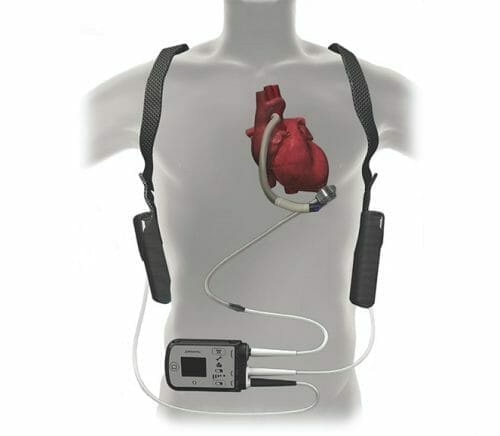Abbott Laboratories (ABT.NYSE) announced their FreeStyle Libre system, a sensor-based glucose monitoring tech, is now being used in hospitals setting during the COVID-19 pandemic.
This will make it easier for frontline healthcare workers to monitor their patients’ glucose status and history. Frontline healthcare workers have a billion problems to worry about during this pandemic, and anything that can take one or two of those problems off their hands has to be a godsend. The company will be donating 3,000 Freestyle Libre sensors to make sure hospitals and frontline workers have immediate access.
“The in-hospital challenges presented by the COVID-19 pandemic have forced frontline workers to think creatively about how to safeguard against unnecessary exposure between themselves and patients, especially people with diabetes. Having access to sensor-based glucose monitoring technology in hospitals is one such creative solution to significantly help healthcare workers closely monitor glucose status while limiting direct contact and preserving valuable personal protective equipment,” said Bruce Perkins, M.D., director of Leadership Sinai Centre for Diabetes and Clinician-Scientist at the University of Toronto.
In people with type 1 diabetes, the immune system attacks healthy tissues of the body and destroys insulin-producing cells of the pancreas. This kills the body’s ability to supply insulin to the body, and therefore the ability to regulate blood sugar. Type 2 is a little different. It’s when your body gets resistant to insulin or can’t produce enough. Insulin is the hormone secreted by the pancreas that’s responsible for moving glucose from your blood to your cells, so your cells can convert it to energy. Without insulin, your cells can’t use glucose, and diabetes symptoms can occur. These may include fatigue, increased hunger, increased thirst, and blurred vision.
Diabetes is one of those diseases with a drastic effect on the immune system of the patient, which means they’re susceptible to the nastier elements of COVID-19. People with diabetes are more at risk to develop infections because high blood sugar levels can weaken the patient’s natural immune defenses. Some diabetes-related issues, like nerve damage and reduced blood flow to the extremities, can also increase the body’s vulnerability to infection.
According to Health Canada, more than 15% of Canadians who get diagnosed with COVID-19 are hospitalized. The use of the FreeStyle Libre system in Canadian hospitals has received support from the country’s leading organizations, including Diabetes Canada and Diabète Quebec.
Here’s how the device works.
A patient wears the sensor on the back of their upper arm, and the doctor waves either a reader or their smartphone over it. The glucose readings are measured every minute, and this way the doctor can get current glucose measures, historical trends and patterns, and arrows indicating the direction that glucose levels are fluctuating in without having to poke themselves in the finger with a sharp object.
“Providing frontline healthcare workers with technology and equipment is critical in the fight against COVID-19. Health Canada’s quick action to make FreeStyle Libre sensors available in hospitals will help frontline healthcare workers better monitor and manage the glucose levels of patients and, at the same time, help limit COVID-19 exposure,” said Marie-Flore Nabor, general manager of Abbott’s diabetes care business in Canada.
For doctors, this means getting data about blood glucose so they can make decisions based on actionable information through LibreView, which is a secure, cloud-based diabetes management system. Recent studies showed that the Freestyle Libre improves glucose control, decreases time in hyperglycemia and hypoglycemia (blood sugar is either too high or too low) and results in fewer hospitalizations.
—Joseph Morton


